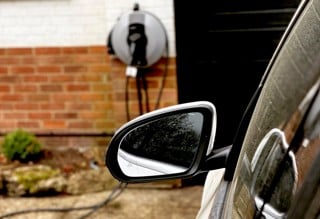A recent white paper published by AllStar reveals the cost benefits of using a fuel card.
‘Pay and Reclaim’ (P&R) remains a common method of reimbursing employees for their business mileage and AllStar’s study revealed that this is an acceptable method for those employees who claim infrequently.
However, if you manage a fleet that does regular business travel then you can begin to see the cracks opening up in the P&R scheme. This is partly because the fixed ‘pence per mile’ calculation is fundamentally flawed, whether made by the company or based on HMRC Advisory Fuel Rates (AFR). It relies on factors that can fluctuate – e.g. average national fuel price or average mpg – or on information that’s taken on trust, such as the business miles the driver declares he has travelled. Therefore, according to Allstar, it’s basically a ‘finger in the air’ calculation that sometimes favours the company and sometimes the driver. But, with a fuel card you’re paying for the true cost of fuel your drivers use and their receipts.
The AllStar study reveals further benefits of fuel cards including:
- P&R schemes mean drivers have to bear the burden of paying fuel costs upfront. According to the research, this means they have a tendency to compensate themselves by exaggerating their business mileage and inflating their expenses claims. On the other hand, fuel cards are seen as more convenient and a positive indication that the company is trying to make the driver’s life easier.
- P&R schemes increase administration costs since expenses claims have to be processed and this is made more complex and time consuming when drivers fail to supply fuel receipts. However, when you use a fuel card, your company will receive one consolidated invoice – there’s no need for drivers to keep their receipts or for your staff to waste time chasing them!
- A survey conducted by Concur in 2011 of 380,000 employees showed that 41% of their expenses claims were submitted without a receipt and therefore the VAT was unrecoverable. Whereas a fuel card like AllStar provides companies with one HMRC compliant invoice so there’s no need to rely on drivers to collect VAT receipts and hand them in.
- A P&R scheme does little to encourage drivers to improve their fuel consumption since they are reimbursed at a fixed rate based on a nominal mpg for their vehicle. However, companies that use a fuel card have access to useful management information that allows them to target drivers whose average mpg suggests an inefficient driving style. Companies can then provide training in driving techniques that will help reduce both fuel consumption and CO2 emissions.
- Select a fuel card that has nationwide coverage and you can also encourage drivers to stop at lower-cost fuel outlets without the need to deviate from their route. For example, with an AllStar card your fleet can refuel at around 8,000 filling stations nationwide so there is plenty of opportunity to find a forecourt offering low prices.
Click Here to view the white paper in full



















Login to comment
Comments
No comments have been made yet.